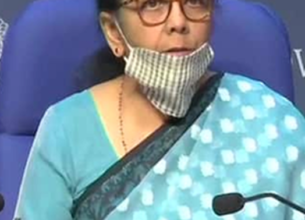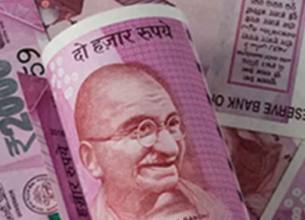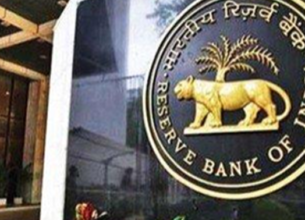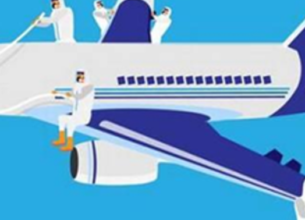THE TRENDS SHAPING THE POST – COVID19 WORLD
12, May 2020
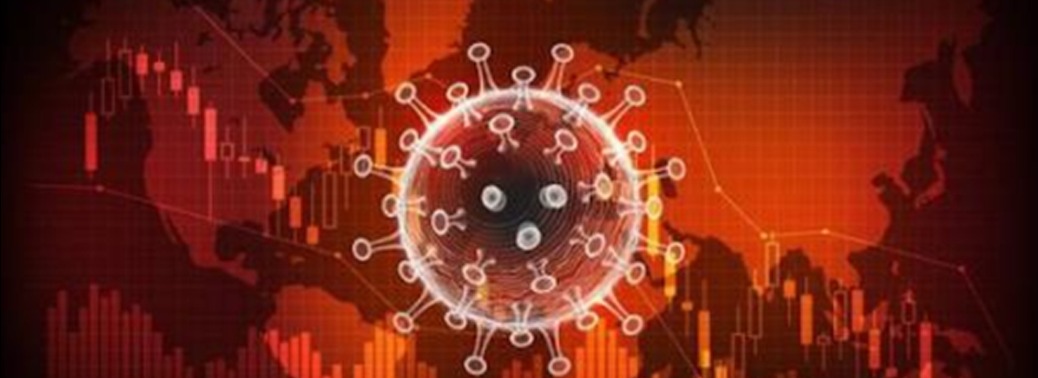
Prelims level : International Relations
Mains level : GS-II Bilateral, Regional and Global Groupings and Agreements Involving India and/or Affecting India’s Interests
Why in News?
- The COVID-19 pandemic that began as a global health crisis, brought in its fold certain geographical trend lines in turn defining the contours of the Emerging Global Order.
Highlights:
Trend Line One: Asia ascending, U.S. Waning:
- The trend which became clear in the aftermath of the 2008 global financial crisis is the rise of Asia. Asian countries have also demonstrated greater agility in tackling the pandemic compared to the United States and Europe.
- This is not limited to China but a number of other Asian states have shown greater responsiveness and more effective state capacity.
- Consequently, Asian economies will recover faster than those in the West.
- Another trend is the retreat of the U.S. after a century of being in the forefront of shaping the global order.
- The U.S.A. played a decisive role right from the Treaty of Versailles and the League of Nations after World War I or the creation of the United Nations and Bretton Woods institutions after World War II, to leadership of the western world during the Cold War.
- It had also been a leader in moulding global responses to threats posed by terrorism or proliferation or climate change.
- Interventions in Afghanistan and Iraq have fatigued the USA on part of its resources.
- Coupled with America first and during the current crisis, the USA’s efforts at cornering supplies of scarce medical equipment and medicines and acquiring biotech companies engaged in research and development in allied states, show that this may mean America alone.
- The U.S. still remains the largest economy and the largest military power but has lost the will and ability to lead.
Trend Line Two: Intra-European fission:
- The Fission is Mainly Manifested Through
- European Union’s continuing preoccupation with internal challenges vis-à-vis inclusion of East European states.
- Impact of the financial crisis among the Eurozone members, ongoing Brexit negotiations.
- Varying threat perceptions vary between old Europe and new Europe making it increasingly difficult to reach agreement on political matters e:g relations with Russia and China.
- In addition to it, there is the North-South divide within the Eurozone. It initially showed up when austerity measures were imposed on Greece, Italy, Spain and Portugal a decade ago by the European Central Bank, persuaded by the fiscally conservative Austria, Germany and the Netherlands.
- Further damage was done when Italy was denied medical equipment by its EU neighbours who introduced export controls.
- The Schengen visa or free-border movement has already become a victim of the Pandemic.
Trend Line Three: Rising China:
- Continuing in the line is the emergence of a stronger and more assertive China.
- Chinese assertiveness has raised concerns, first in its neighbourhood, and now in the U.S. that feels betrayed because it assisted China’s rise in the hope that an economically integrated China would become politically more open.
- In recent years, the U.S.-China relationship moved from cooperation to competition; and now with trade and technology wars, it is moving steadily to confrontation.
- The Belt and Road Initiative seeks to connect China to Eurasia and Africa through both maritime and land routes by investing trillions of dollars in infrastructure building as a kind of pre-emptive move against any U.S. attempts at containment.
Trend Line Four: Fading Organisations:
- In the wake of COVID-19, international and multilateral bodies are nowhere on the scene as a global response.
- The World Health Organisation (WHO) has become a victim of politics.
- Its early endorsement of the Chinese efforts has put it on the defensive as the U.S. blames the outbreak on a Chinese Biotech Lab.
- The UN Security Council (UNSC), the G-7 and the G-20 are paralysed when the world Faces the worst recession since 1929.
- In real terms, these institutions were always subjected to big power politics.
- During the Cold War, U.S.-Soviet rivalry blocked the UNSC on many sensitive issues and now with major power rivalry returning, finds itself paralysed again. Agencies such as WHO have lost autonomy over decades on account of shrinking fiscal budgets, forcing them to increasingly rely on voluntary contributions sourced largely from western countries and foundations.
- The absence of a multilateral response today highlights the long-felt need for reform of these bodies but this calls for collective global leadership.
Trend Line Five: The Energy Politics:
- The surging demand in renewables and green technologies on account of climate change concerns, and the U.S. emerging as a major energy producer were fundamentally altering the energy markets.
- Now, a looming economic recession and depressed oil prices will exacerbate internal tensions in West Asian countries which are solely dependent on oil revenues.
- Long-standing rivalries in the region were common but they can now create political instability in countries where regime structures are fragile.
Prospects for India:
- India has been making a Point for Some time Now Regarding reform of Global Institutions.
- Presently, the world seems to be at an inflection point and it has come at a time when India can project its capabilities, for instance as the pharmacy of the world.
- India senses a leadership vacuum in the covid-19-driven world.
- The current China-US dynamic has opened up space for middle powers like India to show they can provide some kind of stability.
- It is likely to give rise to quadrilateral and trilateral and other arrangements with countries, such as India, Japan and Australia.
Outreach Efforts by India:
- Phone calls to leaders across continents, virtual summits with regional and other multilateral groupings, and supplying medicines to more than 120 countries are all part of India’s efforts to secure a place for itself in the post Covid-19 World.
- The PM of India has spoken to more than 40 leaders with foreign ministers interacting with an equal number of his counterparts.
- The PM of India has also addressed South Asian heads of government, leaders of G20 countries and a meeting of non-aligned movement conferences via video-link.



